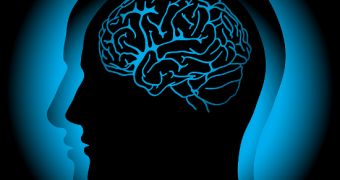A new paper published in yesterday's issue of the journal Developmental Cell argues that the actual act of birth plays a crucial role in brain formation and maturation.
Specifically, researchers say that, according to evidence at hand, actual birth causes a drop in the levels of serotonin that the brain is exposed to.
This in turn translates into the formation of sensory maps in the brain, EurekAlert reports.
In the paper, researchers detail that the neurons in charge of processing various cues having to do with touch, vision and the other senses are arranged in very precise maps without which it would be impossible to make head and tail of the surrounding world.
These maps are the ones whose formation birth is now argued to foster, the same source details.
Thus, experiments on mice have shown that, when these animals are born, their brain gets exposed to lower levels of serotonin than it was while the pups were still inside the womb.
This causes their brain to go into overdrive, and start forming connections in the brain regions responsible for processing visual information.
In the case of mice whose serotonin levels were artificially increased, said connections failed to form properly.
“Our results clearly demonstrate that birth has active roles in brain formation and maturation,” researcher Hiroshi Kawasaki with the Kanazawa University in Japan commented on these findings.
“We found that birth regulates neuronal circuit formation not only in the somatosensory system but also in the visual system. Therefore, it seems reasonable to speculate that birth actually plays a wider role in various brain regions,” he added.
The scientists who worked on this research project believe that their findings could help treat psychiatric disorders that might have something to do with abnormal birth processes.
As Hiroshi Kawasaki put it, “Uncovering the entire picture of the downstream signaling pathways of birth may lead to the development of new therapeutic methods to control the risk of psychiatric diseases induced by abnormal birth.”

 14 DAY TRIAL //
14 DAY TRIAL //